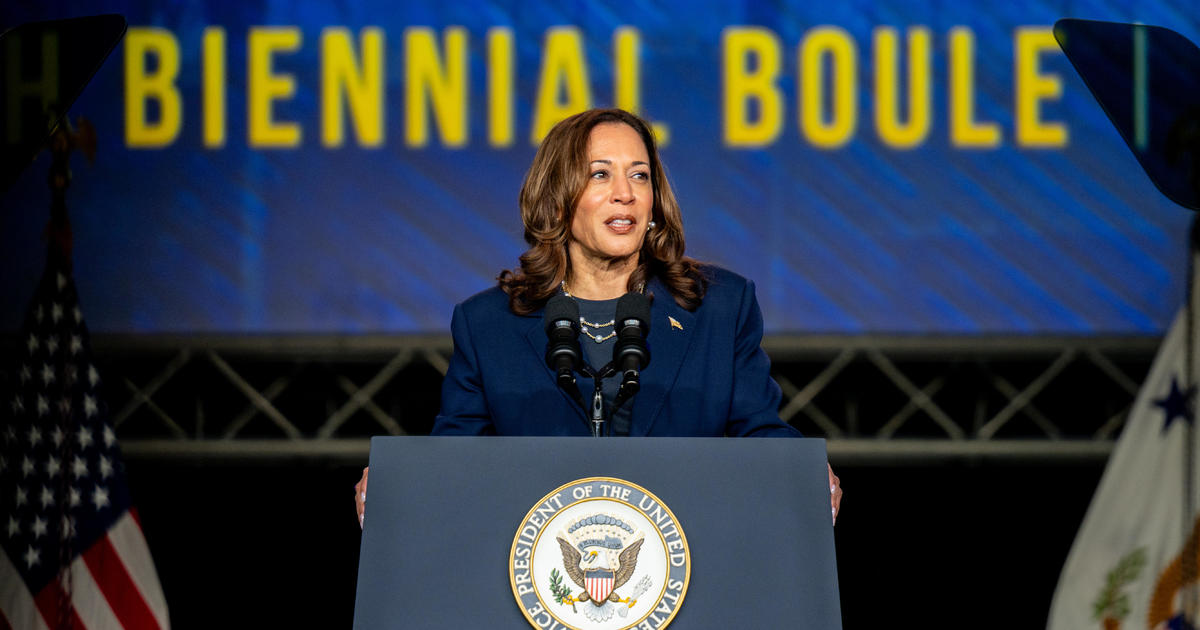In a historic move, the majority of Democratic delegates have voted to select Vice President Kamala Harris as the party’s nominee for president in the upcoming election. This decision was announced by her campaign and the Democratic Party on Friday, solidifying her position at the top of the ticket as they head into November.
The formal process for selecting the nominee began on Thursday, with voting opening for the party’s more than 4,000 delegates to cast their ballots either online or over the phone. Harris needed to secure votes from 2,350 delegates to surpass the threshold required for winning the nomination, which her campaign confirmed she had achieved. The voting period will close at 6 p.m. on Monday, at which point her nomination will become official.
Jaime Harrison, the chair of the Democratic National Committee, made the announcement during a call with Harris’ campaign, emphasizing the historic nature of her nomination. He expressed pride in the fact that Harris would be the first woman of color at the top of a major party ticket, marking a significant milestone in American politics.
Harris herself joined the call by phone and expressed her gratitude at being chosen as the presumptive Democratic nominee for president. She stated that she was honored to accept the nomination once the voting period had concluded.
The vice president also reiterated her commitment to defeating former President Donald Trump in the upcoming election, emphasizing that her campaign is focused on uniting people from all walks of life and backgrounds in a shared vision for the future of the country.
Following President Biden’s announcement of his withdrawal from the presidential race less than two weeks ago, Democrats quickly rallied around Harris as their candidate to take on Trump. Biden endorsed Harris immediately, and numerous prominent Democratic figures threw their support behind her.
Running unopposed for the Democratic presidential nomination after Biden’s exit, Harris entered the virtual roll call vote with the backing of nearly all state delegations. President Biden himself praised Harris for securing the necessary delegate support to clinch the nomination, expressing his pride and urging the party to secure a victory in the upcoming election.
In a testament to her campaign’s strength, Harris’ team announced that they had raised an impressive $310 million in July, a figure that includes funds raised prior to Biden’s withdrawal. This fundraising total dwarfs the $139 million reported by the Trump campaign for the same period, underscoring the momentum behind Harris’ candidacy.
While Harris has not yet announced her choice for vice president, her campaign has vetted a dozen potential candidates, including several Democratic governors. Top contenders have had discussions with Harris’ team, and the final decision on her running mate is expected to be made in the coming days. Once selected, the two candidates will embark on a campaign trail that includes key battleground states such as Pennsylvania, Wisconsin, Michigan, and North Carolina.
Harris’ nomination marks a significant moment in American history, as she becomes the first Black and South Asian woman to be nominated for president. Her previous milestone as the first woman, Black, and South Asian American vice president in 2020 further underscores the historical importance of her candidacy.
Glynda Carr, who leads Higher Heights, an organization focused on supporting Black women in politics, emphasized the transformative impact of Harris’ nomination on how women of color in politics are perceived. She likened it to breaking open barriers that have long hindered women of color in leadership roles, citing the influence of trailblazers like Shirley Chisolm, the first Black woman elected to Congress.
The upcoming Democratic National Convention is expected to feature a ceremonial roll call in honor of Harris’ nomination, highlighting her achievement and the significance of her candidacy. DNC Convention Chair Minyon Moore expressed confidence in Harris’ ability to run a dignified race and lead the Democratic ticket.
Harris is only the second woman to lead the Democratic ticket, following Hillary Clinton’s groundbreaking nomination in 2016. Despite Clinton’s popular vote victory, she ultimately lost the Electoral College to Donald Trump, highlighting the challenges that women face in reaching the highest levels of American politics.
Debbie Walsh, director of the Center for American Women and Politics, noted that women currently hold less than a third of elected positions at the state and federal levels, indicating the ongoing need for progress in gender and racial equity in politics. Harris’ candidacy has the potential to inspire more women from diverse backgrounds to pursue political office in future elections, expanding the possibilities for women’s leadership across sectors.
As Harris prepares to lead the Democratic ticket into the upcoming election, her nomination represents a significant milestone in American politics and a testament to the progress made in advancing diversity and representation in leadership roles. Her historic candidacy paves the way for future generations of women to follow in her footsteps and continue breaking barriers in the political arena.









